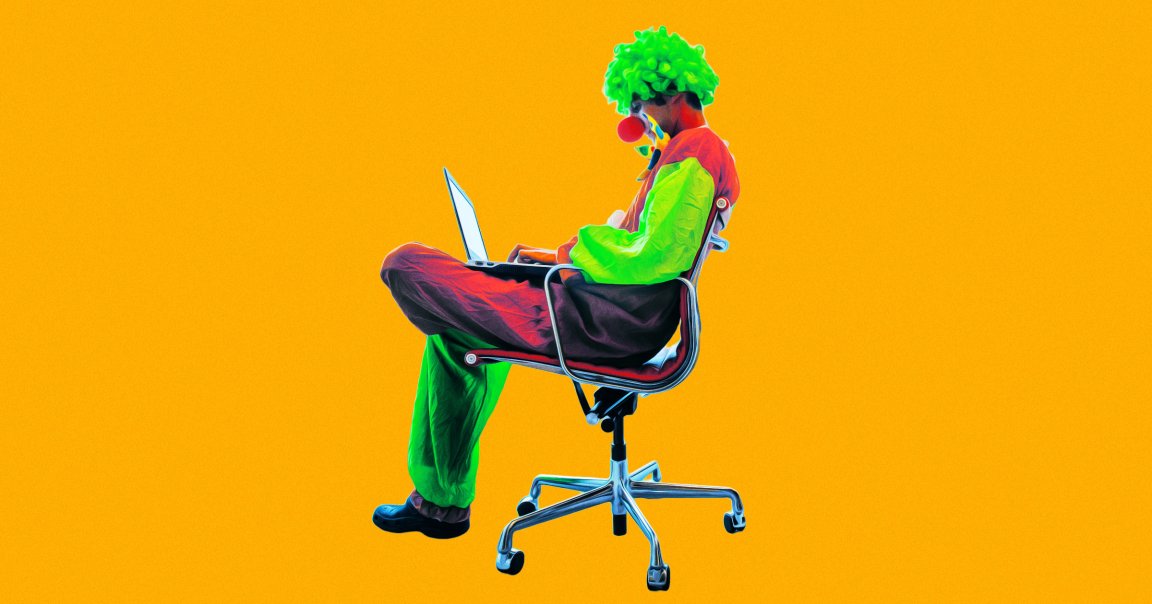
Scientists at the Massachusetts Institute of Technology have found some startling results in the brain scans of ChatGPT users, adding to the growing body of evidence suggesting that AI is having a serious — and barely-understood — impact on its users’ cognition even as it explodes in popularity worldwide.
In a new paper currently awaiting peer review, researchers from the school’s storied Media Lab documented the vast differences between the brain activity of people who using ChatGPT to write versus those who did not.
The research team recruited 54 adults between the ages of 18 and 39 and divided them into three groups: one that used ChatGPT to help them write essays, one that used Google search as their main writing aid, and one that didn’t use AI tech. The study took place over four months, with each group tasked with writing one essay per month for the first three, while a smaller subset of the cohort either switched from not using ChatGPT to using it — or vice versa — in the fourth month.
As they completed the essay tasks, the participants were hooked up to electroencephalogram (EEG) machines that recorded their brain activity. Here’s where things get wild: the ChatGPT group not only “consistently underperformed at neural, linguistic, and behavioral levels,” but also got lazier with each essay they wrote; the EEGs found “weaker neural connectivity and under-engagement of alpha and beta networks.” The Google-assisted group, meanwhile, had “moderate” neural engagement, while the “brain-only” group exhibited the strongest cognitive metrics throughout.
These findings about brain activity, while novel, aren’t entirely surprising after prior studies and anecdotes about the many ways that AI chatbot use seems to be affecting people’s brains and minds.
Previous MIT research, for instance, found that ChatGPT “power users” were becoming dependent on the chatbot and experiencing “indicators of addiction” and “withdrawal symptoms” when they were cut off. And earlier this year Carnegie Mellon and Microsoft — which has invested billions to bankroll OpenAI, the maker of ChatGPT — found in a joint study that heavy chatbot use appears to almost atrophy critical thinking skills. A few months later, The Guardian found in an analysis of studies like that one that researchers are growing increasingly concerned that tech like ChatGPT is making us stupider, and a Wall Street Journal reporter even owned up to his cognitive skill loss from over-using chatbots.
Beyond the neurological impacts, there are also lots of reasons to be concerned about how ChatGPT and other chatbots like it affects our mental health. As Futurism found in a recent investigation, many users are becoming obsessed with ChatGPT and developing paranoid delusions into which the chatbot is pushing them deeper. Some have even stopped taking their psychiatric medication because the chatbot told them to.
“We know people use ChatGPT in a wide range of contexts, including deeply personal moments, and we take that responsibility seriously,” OpenAI told us in response to that reporting. “We’ve built in safeguards to reduce the chance it reinforces harmful ideas, and continue working to better recognize and respond to sensitive situations.”
Add it all up, and the evidence is growing that AI is having profound and alarming effects on many users — but so far, we’re seeing no evidence that corporations are slowing down in their attempts to injecting the tech into every part of of society.
More on ChatGPT brain: Nation Cringes as Man Goes on TV to Declare That He’s in Love With ChatGPT